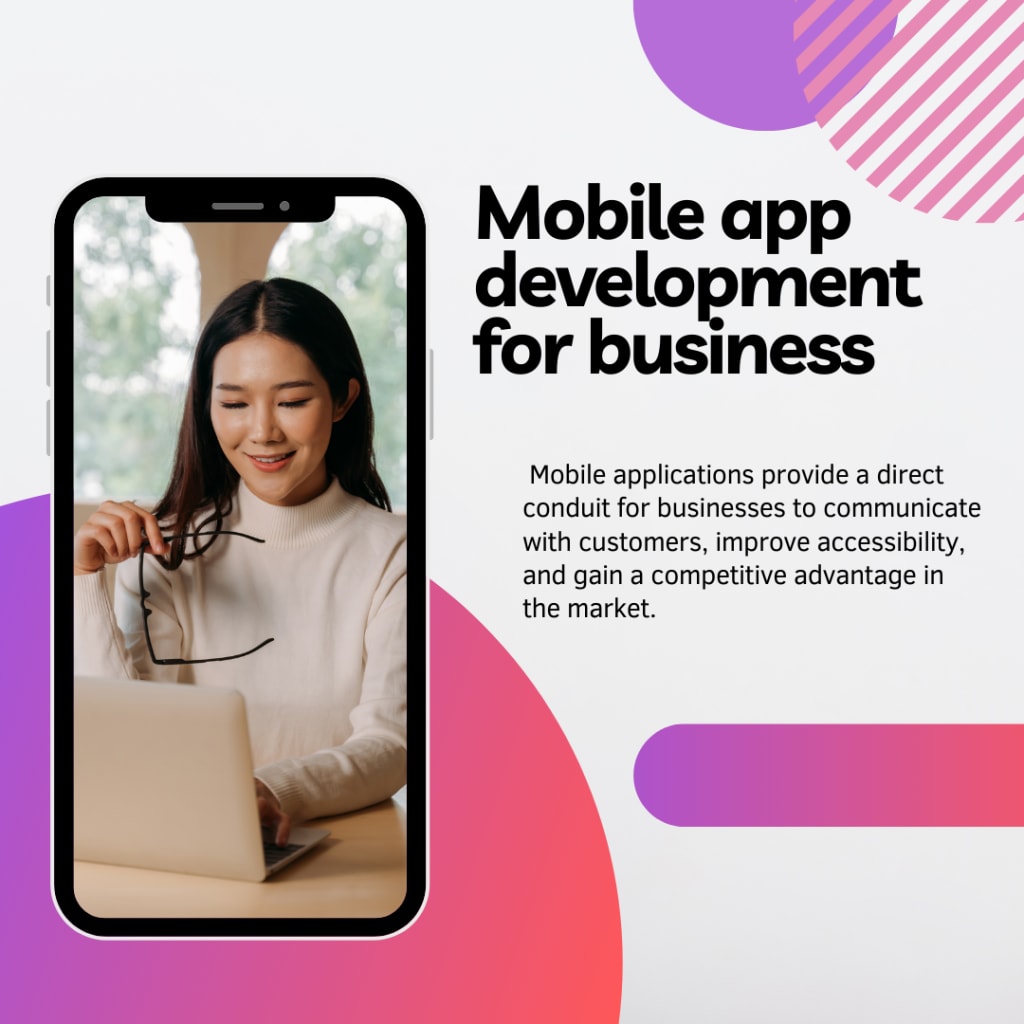
In today's fast-changing corporate environment, mobile app development has emerged as a critical aspect in driving success and growth. With the widespread usage of smartphones and tablets, businesses are realizing the value of having a mobile presence. This introduction gives a quick summary of the importance of mobile app development and highlights the main reasons why organizations should focus on it. Mobile applications provide a direct conduit for businesses to communicate with customers, improve accessibility, and gain a competitive advantage in the market.
Accessibility and Convenience:
Mobile phones are becoming popular worldwide. The stats show this: by 2025, more than 7.33 billion individuals will be using mobile phones. This implies that everyone has access to a mobile device. Especially with low-cost alternatives accessible in many regions. Mobile phones have become an integral part of our lives, and businesses must consider how they are used.
Mobile applications have transformed the way we shop and do things. They make it convenient for us to get goods or services anytime we want, wherever we are. Mobile apps allow us to buy groceries, book a hotel, and view movies all from our phones. They're quite useful since they allow us to shop and engage with businesses whenever it's most convenient. Customers and companies alike appreciate how handy this is.
Many businesses use mobile applications to make things easier for their clients. Consider large internet retailers such as Amazon or Alibaba. Their applications allow us to buy anything and check our orders with a few touches. Then there are ride-sharing applications like Uber and Lyft, which make it simple to get a ride no matter where you are. Even food delivery businesses like DoorDash and Uber Eats use smartphone applications to deliver meals to our doors. These companies show how mobile apps may increase accessibility and make life easier for everyone.
Enhanced Customer Engagement:
Businesses may communicate directly with clients using mobile applications. They send communications to inform clients about new products or to solicit feedback. For example, a fitness app may remind you to exercise or rejoice when you reach a fitness goal. Food delivery applications may offer discounts or inquire about the status of your most recent order. Businesses that communicate with their consumers in this manner can keep them satisfied and returning for more.
Competitive Edge:
A mobile app provides a firm with a competitive advantage. According to studies, businesses that use apps have happier consumers and generate more money than those who don't. Businesses may make their applications even more unique by introducing intriguing features. For example, a store may allow you to use your phone's camera to preview how furniture will appear in your home before purchasing it. This makes customers prefer the app and pick that company over others.
Brand Visibility and Recognition:
A company must be well-known to stand apart. Mobile applications assist with this by promoting the company's brand and making it easier to locate in app stores. Businesses may also use their app to communicate their narrative, such as posting exclusive deals or engaging content. This makes customers remember the brand and desire to return for more.
Revenue Generation:
Revenue generation means making money for businesses. They do this by selling things to customers, like clothes in a store or food in a restaurant. Some businesses provide services, like fixing cars or cleaning houses, and they charge money for that. Others make money by showing ads, like on websites.
Here are some different ways to generate revenue:
A. Different Ways Apps Make Money:
There are several ways to make money with mobile apps. One method is through in-app purchases, in which users buy extra content within the app, such as unique features or products. Another option is to use subscriptions, in which customers pay every month to have access to particular materials or services. Then there are adverts, in which the app displays adverts and the app owner earns money when users click or watch them. Some applications provide basic functions for free but charge for premium content, such as extra levels or features. This is known as "freemium." Others charge consumers only once to download the program. And other applications collaborate with companies to market their products within the app.
B. How Apps Help Businesses Make More Money:
Apps may help businesses sell more products and earn more money in a variety of ways. For starters, they let businesses communicate with their consumers. It delivers them tailored messages and offers that might increase sales. Second, applications enable businesses to access clients outside of their immediate location. It allows them to sell to a larger audience. Apps also allow users to buy products fast and easily, which can lead to increased sales. Applications collect information about what customers like. Hence, it allows firms to market products that people desire. Good applications make businesses seem nice, which increases trust and leads to more sales.
C. How Popular Apps Make Money:
Some of the most popular applications generate revenue in various ways. Netflix and Spotify, for example, charge users a monthly price to watch movies or listen to music. Games like Fortnite allow players to buy fancy items in-game, which generates a lot of revenue. Some programs provide basic functions for free, but charge for additional features or storage. Facebook and other social media applications generate money by showing ads to users. Apps such as Google Maps use location data to offer users ads or recommend areas to visit. These are a few examples; successful applications use a combination of these approaches to continue producing money and growing.
Data-driven Insights and Analytics:
Mobile applications are significant sources of data insights. They provide organizations with actionable data on user activity, preferences, and demographics. Advanced analytics tools allow businesses to check key performance metrics. They also assess the efficacy of their app strategy. Businesses may use data-driven insights to make educated decisions. They fine-tune their marketing efforts and improve the effectiveness of their mobile applications. This iterative strategy enables businesses to react to shifting market circumstances. They continually improve the customer experience.
Conclusion
So, having a mobile app is essential for organizations nowadays. It enables them to reach more consumers, keep them pleased, and remain ahead of competitors. Businesses may position themselves for future success by concentrating on developing a terrific app that customers enjoy. In today's digital environment, developing mobile apps provides several benefits to organizations. They assist firms in connecting with customers. It differentiates itself from the competition and increases brand visibility. As people's requirements evolve, businesses must invest in mobile app development. Companies may prepare for the future by being inventive and effective in their use of mobile technologies.
About the Creator
IamVector
IamVector is a website which provides free icons to the users. It offers its services to graphic designers, visual designers, UI/UX designers.






Comments
There are no comments for this story
Be the first to respond and start the conversation.